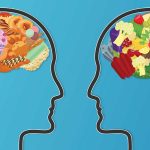Always forgetting where you put your keys? Or lose your phone when it’s in your hand? Perhaps it’s because your memory is impaired. When everything you need is stored in notes or on your hard drive, and memorable dates are prompted by reminders, your brain relaxes. That’s why your memory gets weaker. But the good news is that you can train it!
And it’s better to start improving your memory when you are young: it will help keep your mind working. And it will be useful in old age when the brain begins to grow old and fail.
Types of Memory
There are three types of memory:
- Sensory. This is information from our senses, which is transmitted automatically and is stored for up to 3 seconds.
- Short-term. Information in it is “held” for only 30 seconds and is quickly “erased” from memory without repetition.
- Long-term. This is the “storage” in which information is stored for hours, months and decades. Betamo live casino strategies for hitting huge jackpots or or your family members’ birth dates are great examples here. In turn, long-term memory is divided into procedural (body movements, use of objects) and declarative (facts, dates, names, events).
At first glance, everything seems simple. But people still don’t know exactly how memory works and why we forget something important, but remember insignificant things. Emotions play a big role in remembering, but at the same time from strong stress we, on the contrary, forget everything.
There is another classification of memory: auditory, visual, motor and complex. And not all people have the same development of these types: some people have one type working better, and another – worse. Simply put, some people memorize faster by reading, while others need to listen or write a few times.
Types of Attention
Long-term memory wouldn’t exist without attention, because we often concentrate on something in order to remember it. There are three types of attention in total:
- Involuntary – requires no effort. It’s turned on all the time in the background: it reacts to loud noises, flashes of light, etc. We don’t need it for memory training.
- Voluntary is the result of our volitional efforts, when we force ourselves to concentrate. Thus, it’s necessary to concentrate on the information we need to remember.
- Post-arbitrary is initially driven by an effort of the will and then sustained by interest. So, you just have to force yourself to read a book, and then it’s impossible to tear yourself away. This also comes in handy for us, for example, when solving puzzles.
Simultaneously with memory and attention it’s necessary to develop thinking, but we will talk about it another time.
Exercises for the Development of Memory
There is a theory that a person does not forget anything: he just can not get the necessary information from long-term memory! The main snag lies here: you have to both memorize qualitatively and quickly search for information in the long-term memory vault. Our exercises are unlikely to let you memorize all the digits of Pi, but they will help you train your memory for daily tasks!
Schulte Tables
These are tables with cells in which numbers are scattered. The task: to find them in order by silent counting. To do the exercise correctly, you need to focus on the central cell and look for the numbers with your peripheral vision.
Aivazovsky Method
Excellent for developing photographic memory. Memorize first simple objects, uncomplicated drawings. The search for differences works well. For training visual memory are also excellent games, where you need to find a hidden object in the picture. These are all variations of the Aivazovsky method.
How to Develop Your Auditory Memory
Eavesdropping in Transport
No, not to collect the keys and passwords, but just to listen to snatches of conversations and memorize them. The content of conversations, intonation, features of speech – try to memorize in the morning, and in the evening to reproduce the dialogues of fellow passengers in your mind.
Reading Aloud
Adults read to themselves 99 percent of the time, but reading aloud is good for memory. It activates the prefrontal cortex, which is responsible for goal setting and self-organization.
Listening to Audiobooks
If you want to improve your memory by ear, books in audio format are a godsend. Start with short stories. Listen, and then retell the events to yourself, visualizing the characters.
How to Improve Short-term Memory
Oral Counting
A calculator is always handy, but counting in your mind is much more useful for short-term memory. Start with simple arithmetic and then count percentages (discounts and promotions), multiply, and divide.
Another Hand
Engage your non-working hand during household tasks. Your motor memory knows perfectly well how to perform familiar actions with your working hand, and using the other hand forms new neural connections and stimulates motor memory. It’s a simple exercise, but you’ll be surprised how unaccustomed you feel at first.
A Quick Exercise for the Brain
Solving small Sudoku’s involves short-term memory. Start solving them at speed, trying to remember more and more numbers each time. Good to train your working memory puzzles, where you have to remember several elements in a short time. For example, the inverted cards, which must be opened strictly in pairs.
How to Develop Long-term Memory
Memorizing Everything
Gradually begin to rely solely on your memory. Memorize to-do lists, shopping, phone numbers, addresses and more. It is useful to learn by heart poems, new words. A great way to improve your memory is to learn foreign languages.
Remembering Everything
Try to recall a long-read book, movie, TV series, conversation. Get the information out of your head as often as possible, without resorting to outside sources. For example, you have a sample shopping list for the week. Memorize it and shop from memory. Constantly refer back to the information you’ve learned without looking at the written list.



